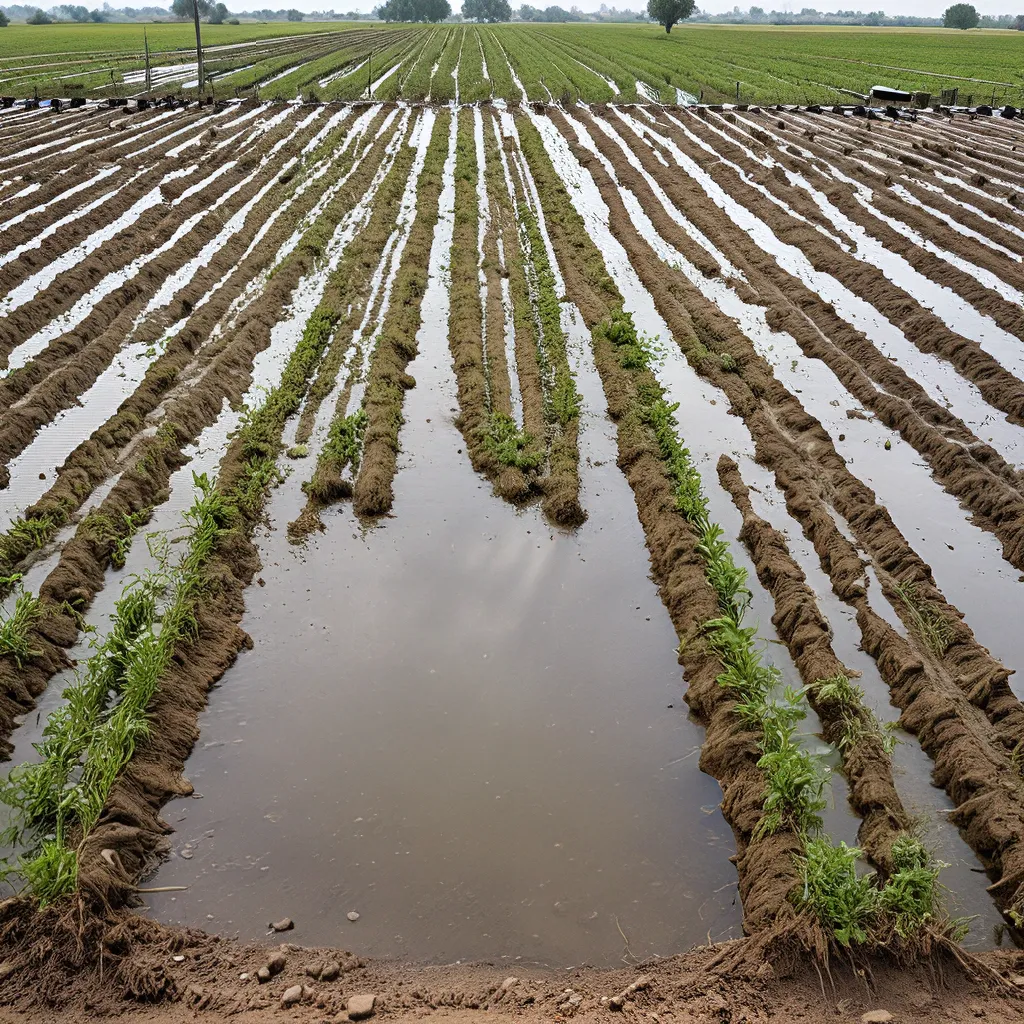
As someone deeply passionate about sustainability and the responsible use of our precious natural resources, I’ve been fascinated by the topic of wastewater reuse for agricultural irrigation. It’s a complex issue that requires us to carefully weigh the risks and benefits, considering the perspectives of various stakeholders, from farmers to environmental advocates.
A Balancing Act: Weighing the Pros and Cons
On one hand, the potential benefits of using reclaimed wastewater for irrigation are undeniable. Freshwater scarcity is a growing concern worldwide, and repurposing wastewater could help alleviate the strain on our limited water supplies. This is especially crucial for regions facing chronic water shortages, where agricultural productivity often hangs in the balance. By tapping into this alternative water source, we can support food production and ensure food security for communities that might otherwise struggle.
Moreover, the nutrients found in wastewater can potentially act as a natural fertilizer, reducing the need for synthetic inputs and cutting down on associated costs for farmers. This could translate to more sustainable and cost-effective agricultural practices, benefiting both producers and consumers.
However, the risks of wastewater reuse cannot be ignored. There are legitimate concerns about the presence of contaminants, such as heavy metals, pathogens, and organic pollutants, which could have adverse effects on soil, crops, and ultimately, human health**. The accumulation of these substances in the food chain is a valid worry that demands thorough investigation and risk assessment.
Navigating the Regulatory Landscape
Regulatory frameworks play a crucial role in striking the right balance between the benefits and risks of wastewater reuse. Across different regions, we’ve seen a range of approaches, with some countries and jurisdictions being more proactive and stringent in their regulations, while others lag behind.
In the United States, for instance, the Environmental Protection Agency (EPA) has established guidelines for the safe use of reclaimed water in agriculture, outlining water quality standards and best management practices. These guidelines aim to protect public health and the environment, while still enabling the responsible utilization of this valuable resource.
On the other hand, the regulatory landscape in developing countries is often more fragmented and less well-defined, leaving room for inconsistent practices and potential risks. This highlights the importance of global collaboration and knowledge-sharing to help establish harmonized standards and ensure the safe implementation of wastewater reuse programs worldwide.
Embracing Innovation and Collaboration
As we navigate the complexities of wastewater reuse, innovation and cross-disciplinary collaboration will be key to unlocking its full potential. Technological advancements in water treatment, enhanced monitoring and detection methods, and innovative irrigation techniques can all contribute to mitigating risks and maximizing the benefits.
For example, emerging technologies like membrane filtration, advanced oxidation processes, and constructed wetlands are showing promising results in removing a wide range of contaminants from wastewater. Combining these technologies with robust monitoring and precision irrigation systems can help ensure the safety and effectiveness of wastewater-based irrigation**.
At the same time, interdisciplinary collaboration between researchers, policymakers, agricultural experts, and environmental stakeholders is crucial. By sharing knowledge, best practices, and innovative solutions, we can develop comprehensive strategies that address the unique challenges and opportunities in different geographic and socio-economic contexts.
A Path Forward: Responsible Stewardship and Continuous Improvement
As we explore the potential of wastewater reuse for agricultural irrigation, it’s clear that we must proceed with a balanced approach, carefully weighing the risks and benefits. This will require ongoing research, robust regulatory frameworks, and a commitment to responsible stewardship of our natural resources.
At Alpha Wastewater, we believe that by harnessing the power of innovation, collaboration, and evidence-based decision-making, we can unlock the transformative potential of wastewater reuse and create a more sustainable future for our communities and the environment.
It’s an exciting time, filled with both challenges and opportunities. But with the right mindset and a collaborative spirit, I’m confident that we can navigate this complex issue and reap the benefits of responsible wastewater reuse. After all, the stakes are too high for us to ignore the potential of this crucial resource.
So, let’s keep exploring, innovating, and working together to ensure that the water we reuse is safe, sustainable, and beneficial for all. The future of our food systems and environmental health may very well depend on it.